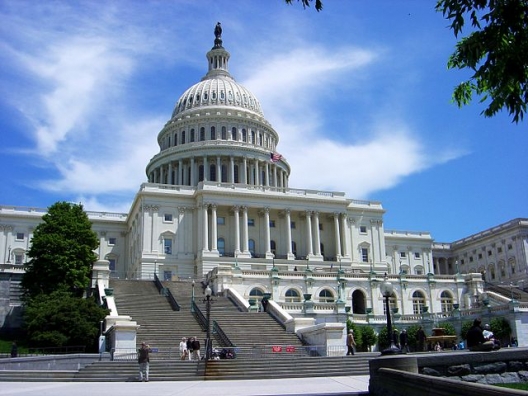 Since the new, Republican-led Congress took office a few weeks ago, transatlantic policymakers should anticipate changes in Washington’s foreign policy atmosphere. Congress is not traditionally perceived as a big player outside domestic issues, but declining public approval of the Obama administration’s foreign policy and new security threats emanating from Europe have put the region back on the forefront of US congressional leaders’ agendas. This has four key implications for the future trajectory of the transatlantic relationship.
Since the new, Republican-led Congress took office a few weeks ago, transatlantic policymakers should anticipate changes in Washington’s foreign policy atmosphere. Congress is not traditionally perceived as a big player outside domestic issues, but declining public approval of the Obama administration’s foreign policy and new security threats emanating from Europe have put the region back on the forefront of US congressional leaders’ agendas. This has four key implications for the future trajectory of the transatlantic relationship.
1. Iran: The Uphill Battle Becomes Steeper
For months, the United States and European Union have been embroiled in nuclear negotiations with Iran. Catherine Ashton, the principal EU negotiator in these talks, is staking her legacy on these negotiations and won’t leave the scene until she sees them through, even though her official role as EU high representative for foreign affairs and security policy passed to her successor, Federica Mogherini in December. From the US side, President Obama has faced mounting political pressure to not make any concessions to Iran. Until the new Congress took over, Obama had enough domestic political breathing room to sustain effective negotiations in part because of the marginal Democratic majority in the Senate. With a new Republican majority in Congress, the Administration is having a much more difficult time convincing Congress to approve any deal the Republican majority sees as granting too many concessions to Iran.
2. Ukraine: Ramping Up Pressure
Since the Ukraine crisis first began a year ago, the United States has taken an overly cautious approach toward Russia, limiting its response to gradually increasing economic sanctions, limited economic and non-lethal military assistance for Ukraine, and modest military initiatives under NATO auspices to bolster security in eastern and central Europe. Now, with a Republican majority, key Congressional leaders including John McCain (the new Senate Armed Services Committee chairman) and Mitch McConnell (the new Senate majority leader) will ramp up pressure on the Obama administration to begin hardening the US military’s presence in Europe, adopt more assertive policies and sanctions against Russia, as well as providing Ukraine with lethal military support (which the Ukraine Freedom Support Act signed in December presaged).
President Obama and his tight-knit foreign policy circle have jettisoned the lethal aid proposal consistently since the crisis began, despite bipartisan domestic support for the idea, pressure from the Departments of State and Defense, and tacit signals that NATO members such as Poland, Estonia, and Canada would provide their own lethal military support as long as the United States took the lead. But as the Russian-backed separatists’ momentum in the east continues, a Republican-led Congress could add enough pressure to finally unblock the path to lethal military support.
3. New Energy Resources for Europe
Many US lawmakers see the recent shale gas boom as a unique geopolitical opportunity for the United States. Exporting US gas to key allies in Europe will strengthen the US gas industry, supplant Russia’s energy chokehold over European markets, diversify Europe’s energy portfolio, and demonstrate political solidarity with European countries eager for greater access to US gas, such as Poland and the Baltic states. However, unwieldy and cumbersome regulations have stymied many natural gas export projects right out of the gate; less than one-quarter of all proposed projects have received a green light from the Obama administration despite their geopolitical importance. Republican Senator Lisa Murkowski, who just took control of the Senate Energy and Natural Resources Committee, and Representative Fred Upton, who will retain leadership of the House energy committee, are both angling to expedite natural gas export approvals with the expressed intent of supplying gas to key NATO allies in Europe.
4. TTIP: A Brighter Looking Future
The United States and EU have been locked in exhausting trade talks over TTIP, which would be the largest free trade zone in the world if implemented and would institutionalize US’ strong economic ties with Europe. Many Democrats in Congress were hesitant to grant Obama “Trade Promotion Authority” to fast-track the negotiations, wary of how the trade agreement will impact distribution of wealth, employment, and labor issues. The future of TTIP looks much brighter with a Republican majority in Congress. The day after the midterm elections, McConnell said, “I’ve got a lot of members who believe that international trade agreements are a winner for America.” Obama agreed, calling free trade a “real opportunity” for Democrats and Republicans to work together.
The challenge will be whether the Obama administration and Congress can strike a delicate balance with its European allies on these four important and interconnected issues: the environmental regulatory components of the TTIP negotiations could impact US and European natural gas production and exports, or a more assertive US policy toward Ukraine could undermine Russian support of an Iran deal.
Midterms in the United States rarely cause tectonic shifts in foreign policy, and this new Congress should not be an exception. Yet the strong public dissatisfaction with Obama’s foreign policy and renewed US government focus on Europe makes the president’s transatlantic agenda more susceptible to congressional influence. Consequently, a Republican-led Congress can amplify its voice on foreign policy issues and play a larger role in shaping US engagement with Europe.
Robbie Gramer is Assistant Director of the Transatlantic Security Initiative at the Atlantic Council. He tweets at @RobbieGramer.
Image: US Capitol, May 4, 2004 (photo: Kevin McCoy)
